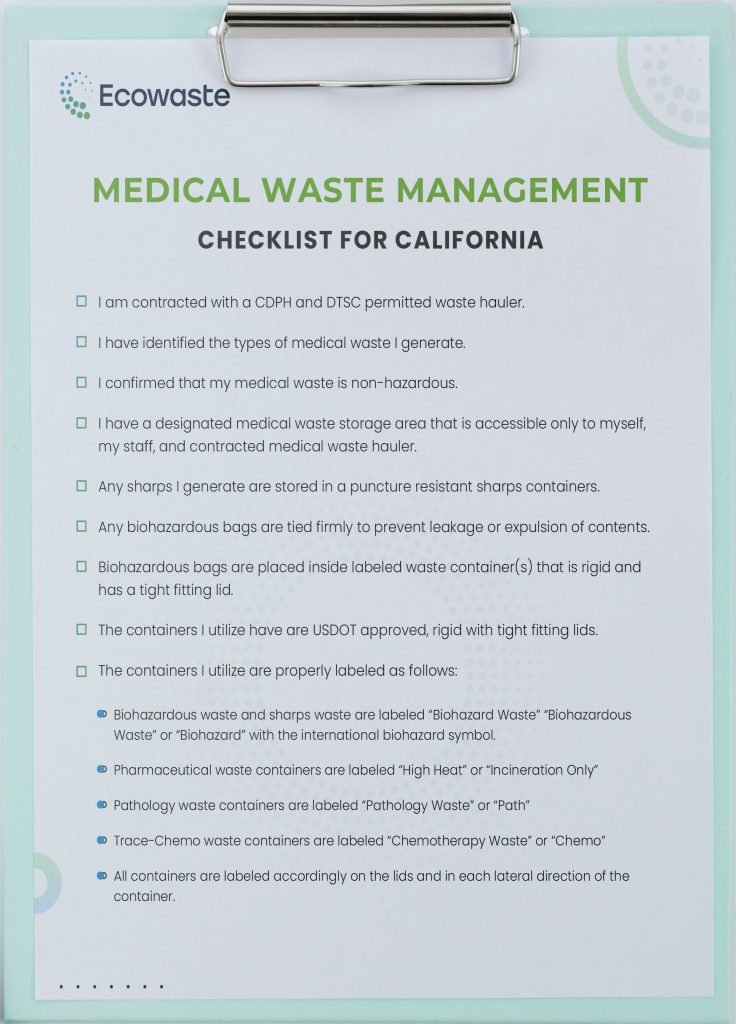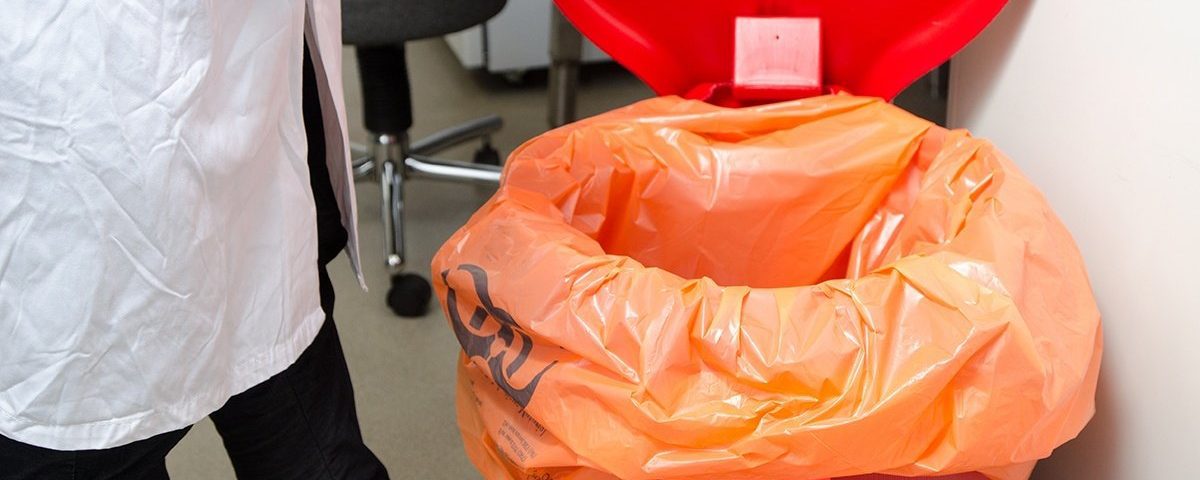What Are The Different Medical Waste Types?
April 26, 2023
Best Practices to Manage Medical Waste in California
April 7, 2024In California, healthcare facilities are required to maintain health and sanitary standards, and proper handling and disposal of medical waste is a crucial aspect to ensure the safety of patients, the public, and the environment.
California's Department of Health has established regulations that licensed healthcare facilities and medical waste generators must follow to ensure proper management of medical waste. In this article, we will explore the medical waste regulations set forth by the Department of Health in California and how it affects your organization.
What is Medical Waste?
Medical waste in California refers to biohazardous, pathological, pharmaceutical, and trace chemotherapy waste not regulated by the federal law called the Resource Conservation and Recovery Act (RCRA) of 1976.
This definition now includes additional waste categories such as sharps, chemotherapy waste, materials from autopsy or necropsy, and waste generated from microbiological testing. Additionally, it covers sharps or lab waste that may pose an infection risk to people, even if it originates from a home setting.
In essence, medical waste consists of non-hazardous materials that are infectious or contain medical chemicals and pharmaceuticals, requiring proper disposal.
Medical Waste Storage and Separation Requirements
One of the primary regulations requires medical waste generators to properly segregate their waste. The waste must be separated by category, including sharps, chemotherapy waste, pathological waste, and other types of medical waste. The waste must be stored in secure containers that are leak-proof, puncture-resistant, and labeled with the biohazard symbol.
Medical Waste Record Keeping
Medical waste generators must also keep a record of their medical waste disposal. The record must include the date, quantity, and method of disposal. The records must be kept for at least three years and made available to the Department of Health upon request.
Another essential regulation is that medical waste must be transported by licensed waste haulers. The waste haulers must be registered with the Department of Health and comply with all state and local regulations. Medical waste must be transported in sealed containers labeled with the biohazard symbol.
Medical Waste Disposal Procedure
Medical waste can be disposed of through several methods, including incineration, autoclaving, and chemical treatment. However, medical waste generators must ensure that the method they choose complies with state and local regulations.
Non-compliance with the medical waste regulations can result in significant penalties and fines. Medical waste generators may also face suspension or revocation of their license.
In conclusion, proper handling and disposal of medical waste are crucial to prevent harm to public health and the environment. The Department of Health has established regulations that all licensed healthcare facilities and medical waste generators must follow. At Ecowaste Solutions, we provide reliable and sustainable waste management services for medical waste generators in California. Contact us today to learn more about our services and how we can help you achieve regulatory compliance for your medical waste disposal needs.

Free Medical Waste Compliance Checklist
Take control of safety in your organization. Download this checklist to keep your staff and patients safe.

